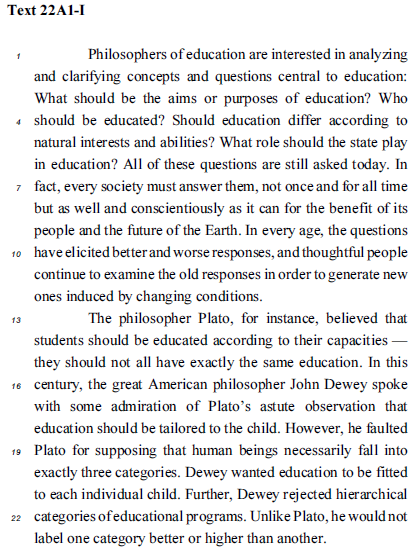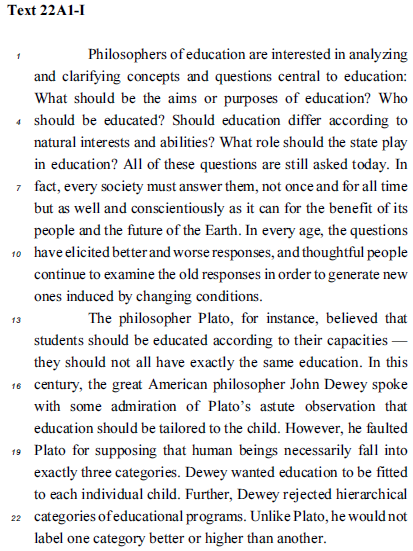Questões de Inglês
Lista completa de Questões de Inglês para resolução totalmente grátis. Selecione os assuntos no filtro de questões e comece a resolver exercícios.

Nel Noddings. Philosophy of education. New York: Routledge, 2018 (adapted).
-
A) are interested in (l.1) inspired in
B) thoughtful people (l. 10) sympathetic people
C) but as well (l.8) however well
D) he faulted Plato (l. 18 and 19) the American criticized Plato
E) he would not label (l. 22 and 23) he did not ought label

Nel Noddings. Philosophy of education. New York: Routledge, 2018 (adapted).
-
A) oppose two different modern views of education.
B) argue for Plato's three categories of human beings.
C) explain some crucial concepts in philosophy and education.
D) show how philosophical views change depending on time and place.
E) introduce the field known as phylosophy of education and some of its concerns.
Concerning the text presented above, judge the following items.
The authors claim that voters attitudes towards the economic situation at the time would lead to them identifying with candidates from traditional political parties.
Concerning the text presented above, judge the following items.
The article presents data from a survey that pointed to optimism about Brazils economic situation.
Concerning the text presented above, judge the following items.
According to the authors, unemployment in Brazil, at the time of publication, affected all gender and racial profiles equally.
Concerning the text presented above, judge the following items.
When the article was published, unemployment rates in Brazil had been going down.
Concerning the text presented above, judge the following items.
It can be concluded from the text that job creation was a priority for many Brazilian voters, in 2018.
Judge the following items, based on the text above.
Brazil is the antecedent of the pronoun its in its absolute number of exporters (third sentence).
Judge the following items, based on the text above.
The text cites Norway as an example of a country with a similar number of exporters and total population as Brazil.
Judge the following items, based on the text above.
The authors present data that demonstrates that, when the text was written, Brazil participated in international commerce at the same level as other countries with robust economies.


